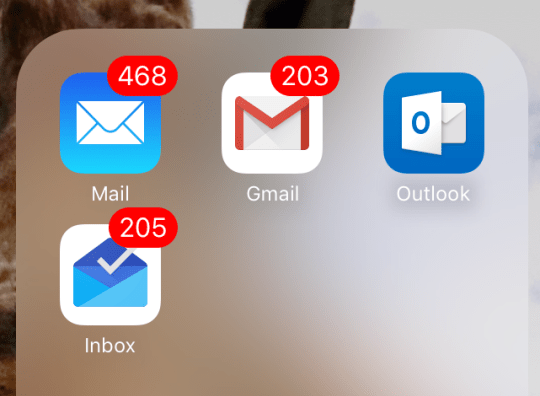I remember when email marketing was becoming ‘THE TOOL’ progressive thinking dry cleaners used to market and promote their services. My mentor had organized a conference in Chicago where he was very excited to introduce this new cutting edge communication tool. I recall sitting in the front row listening to a fellow dry cleaner presenting a new service he and his brother had created to give the neighborhood dry cleaner the same communication power using email just like Fortune 500 companies were. One paid a small monthly fee to access the email marketing system and a library of messages, and that was it….it didn’t cost anything to send messages, delivery was free. Only a few electrons were inconvenienced using the service, well, that was the view from the dry cleaner’s point of view.
But from the customer’s point of view, it was something else entirely. It started out as a fantastic new feature where the cleaner would email a notice that your order was ready to be picked up. When you forgot about your order, the cleaner would send a gently worded reminder to come and pick up your clothes. Then came the newsletters emailed on a sporadic basis, along with the occasional coupon. Then, something changed.
Other than the small fee to access the email marketing system, that was the only expense. The cost to email 100 messages was the same as the cost to email a million messages. So, if sending 100 messages were good, emailing one million messages would be 1,000 times as good. Well, good for the cleaner that is.
Well, no.
My friend Kelly is a very astute Irish philosopher. He coined this interesting phrase: ‘we are all given crayons in kindergarten, but not all of us should be allowed to draw’.
Kelly has a brilliant observation: while we all may be given access to tools, not everyone should be allowed to use them, let alone have them.
In some instances there should be limits, there should be barriers to entry, and with email marketing, the same should have applied. While everyone was being given crayons (email marketing systems), not everyone should have been allowed to draw.
Some cleaners began sending monthly email newsletters, which then became every two week newsletters, then weekly. Some cleaners simply abused the tool, flooding email inboxes with message after message after message. Customers were inundated. Customers began to turn off and ignore messages. Open rates for email marketing messages plummeted. And then, messages were not being seen at all as customers began to train their spam filters to automatically trash can email messages from their dry cleaner as they came in…completely…unseen.
Our customer’s attention is the most precious commodity we cleaners can attain. Lose the customer’s attention, or worse, piss them off, and we are right back out into the cold. I’ve seen it happen with email as a communication and marketing tool, and I’m seeing it happen again with text message marketing.
Fair words of warning: we cleaners are about to lose text message marketing as a communication and marketing tool, and we have no one to blame but ourselves.
A couple weeks ago, I received a phone call from one of my clients. He is switching point-of-sale systems. His new point-of-sale company had been having some issues with text messages NOT being delivered to some of the cleaner’s customers. Since I do some text message marketing for clients, would I mind having a discussion to see if I might be able to find out what was causing some messages to not be delivered?
Well, upon digging into deliverability issues, I found that one of the major telco carriers had recently updated their policies regarding text messages, and this new policy resulted in blacklisting some senders of text messages for being in breach of policy. This is a major telco carrier, and this blacklisting creates a sizable hole in my client’s communications plan. But it gets worse.
Another major carrier has announced their plans to also raise their SMS/Texting policies to match. Within days we could see our ability to send text messages to our customers severely limited, or in the case of one point-of-sale company, cut off entirely.
Carriers are demanding the text users comply with the terms of the TCPA (Telephone Consumer Protection Act). The TCPA is Federal Law, and it empowers individuals to sue for damages in small claims and state courts for $500 PER NON-COMPLIANT TEXT MESSAGE you send. With the average dry cleaner sending 30 or more reminder or notification ‘your order is ready’ messages to their customers per day, well, those fines and damages add up REAL FAST! Send out a couple ‘your route driver is coming’ messages to 200 customers on a route, and that’s some big money, more than I know most cleaners to be able to afford to pay and absorb.
Since Telcos are providing systems that enable us to send text messages, these same Telco companies can cut us off or refuse to pass on the messages we send to their users. We are guests on these platforms, and we use them at the pleasure and discretion of the gatekeepers. The gatekeepers have decided that text messaging users want and demand high quality standards of service, and they will not accept any degradation of service, nor will they tolerate abusers of the system. So, out comes the ban hammer and suspension of accounts that are not playing by the rules.
Customers are giving us access to their most intimate, personal and private device. Along with this access comes great responsibility. We cleaners are NOT entitled to use this information in any way we see fit. The TCPA has set a series of best practice rules that must be followed. Unfortunately, many cleaners are not even aware that there are rules and policies in place. I am happy to say that my text messaging platforms I provide my clients DO conform to best practices, policies and laws, there are many systems out there that DO NOT. It’s those systems that will ruin it for everybody by enabling cleaners to once again use and abuse another fantastic communication tool. It’s just so unfortunate that dry cleaners ruin everything for marketing with over enthusiasm. Our customer’s attention is not ours by right, it’s a gift that should be respected, and treated with the utmost care. Abuse it at your own risk, and peril.

